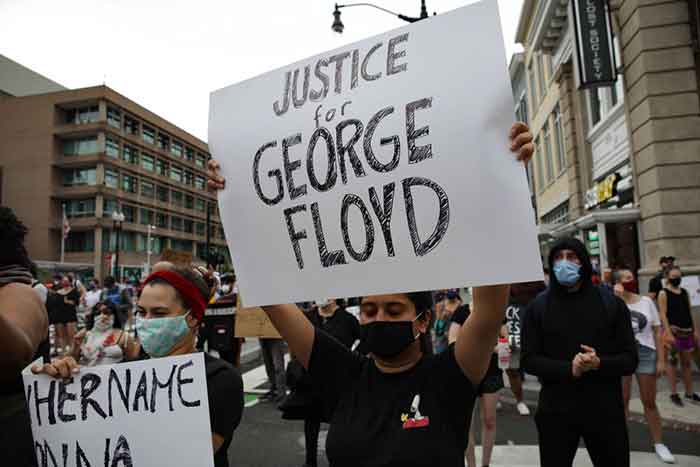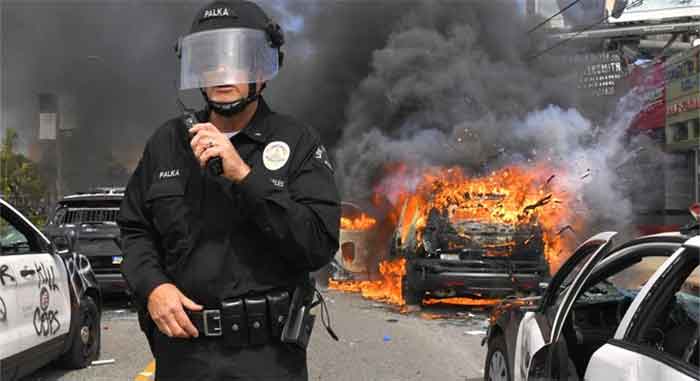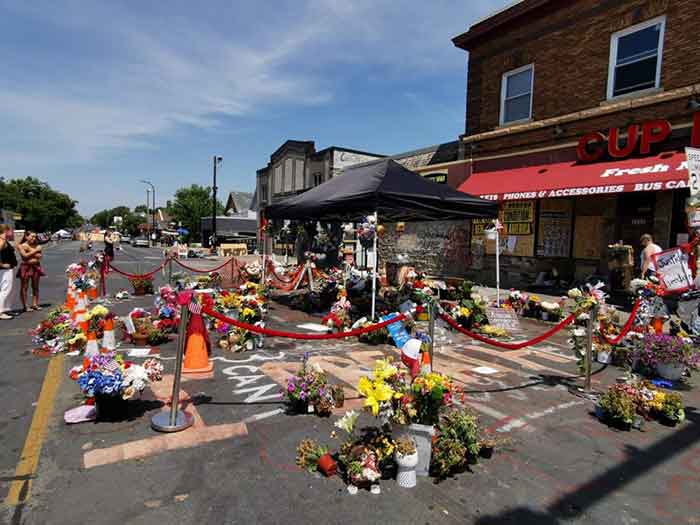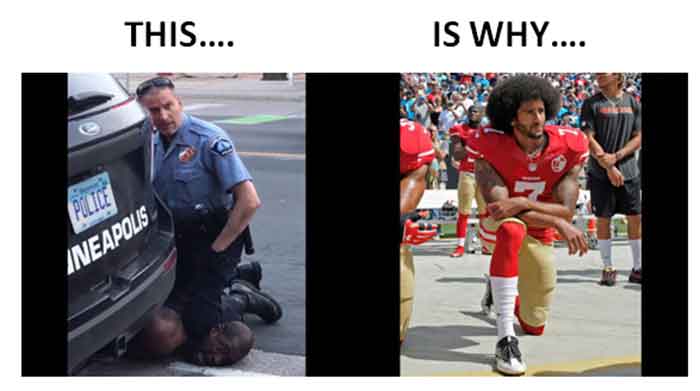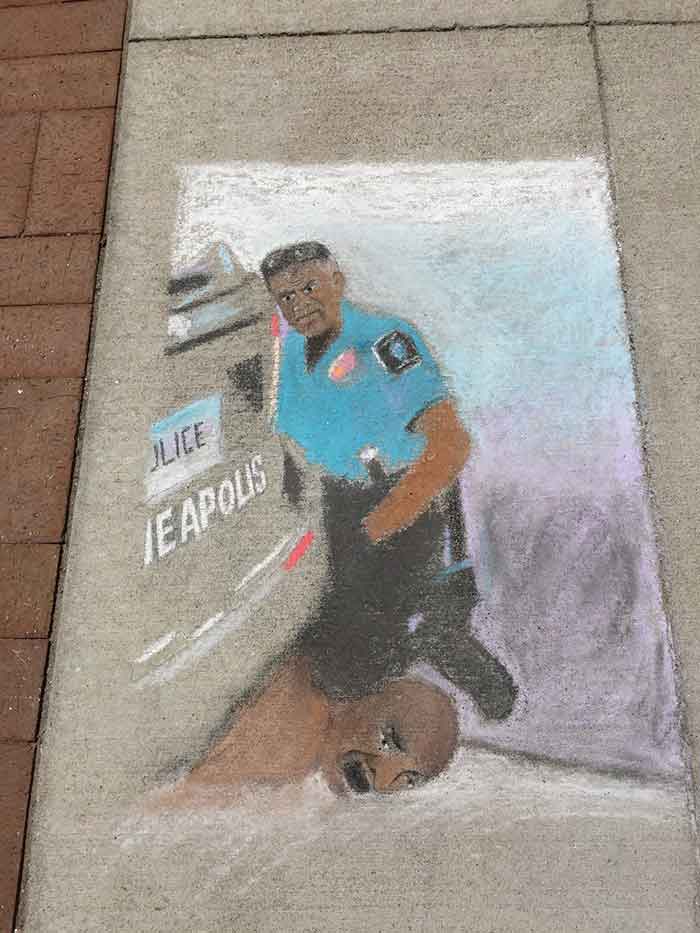
In recent times, a surge in a wave of protest shook the United States of America against the killing of George-Floyd, an African-American citizen, by the US police. The democrats from all over the world have sympathised with this protest. At about the same time Phanidhar Borah died in Jajori in Nagaon district of Assam as a result of police torture. Two constables of Jajori police station beat up Phanidhar after some verbal altercation. He was initially admitted in a local hospital in Nagaon with severe injury and was later transferred to Guwahati Medical College Hospital in critical condition. He died there on the 4th of June. Hardly hundreds and thousands of people in Jajori have protested against this killing. Two people die in two parts of the world, and the killers are people belonging to the same profession. However, in one case, the protest has spanned continents, and in another, it is somewhat muted. The father of a girl, 55-year-old Phanidhar Borah, was beaten to death by two policemen and people’s protests remained confined only to Jajori. It may also be possible that many people in areas adjacent to Jajori or other parts of Nagaon district might have voiced their anger in the social media against the murder of George Floyd. Still, alas, even they might have missed the incidence of Borah.
This contrast in the extent of protests with a change in place, time or personalities involved is nothing new all over the world and especially in India. The people of this country witnessed several struggles during the two-hundred-year of the British rule and also in independent India, and endured the brutal tyranny of foreign and Indian rulers. The ultimate horror of police brutality was witnessed by the people of India decades ago. From Kashmir to Kanyakumari, no list of countless people crippled by police brutality can be found as it has become a daily occurrence. There is no need to look too far back. During the ongoing lockdown, at least 16 very ordinary people have died due to police torture or because of police firings. The people of this country has restricted their protests by circulating some viral video clippings or commenting on social media. One such video in which a policeman knelt on the neck of Mahesh Kumar Prajapat in Jodhpur, Rajasthan, has gone viral. After watching the clip, some of us have felt that Mahesh Kumar is lucky to escape death while George Floyd died under similar treatment by the police in Minnesota, USA. However, forget about a storm, not even a gentle breeze of protest took place.
In recent India when and where the storm of protests will hit is mainly determined by a combination of place, time and persons involved. One such protest took place in December 2012 and in the days that followed after the rape and death of Nirbhaya. The site of the protest was the capital of the country, Delhi and the time was 15 months before the LokSabha elections. It was by that time the rightists, keeping an eye on the forthcoming election, has entered the election arena with all their might to seize power. The person in this context is the only daughter of a middle-class family. The people of the country, mainly the upper and middle classes, roared against the rape and brutal murder along with coverage from the media. The water flowed far and wide. The central government enacted new laws against rape and murder. The convicts were punished after going through various ups and downs of the judicial system, and four of them were hanged. Nirbhaya’s mother went to sleep in peace. According to the National Crime Records Bureau, there were 38,947 rapes in 2016, 32,559 in 2017 and 33,977 in 2018. However, such storm of protest against these rape incidences is not raging. This report is not about rape and murder. I mentioned this Nirbhaya incidence only to bring out the nature and the backdrop of the protest movement.
The character of protest in the world’s largest parliamentary democracy is extremely narrow in the case of deaths due to police torture. Isolated demonstrations against police brutality in the area of the deceased or near the police station or at most in the district in which the deceased lived may take place. However, after that, the case would be hushed up, andthe topicwould go to oblivion. Only if there is an active,democratic rights organisation present in that locality, the matter will reach the court. But on the whole, the people of the country or the states concerned, are indifferent to death in police custody. We speak out against the decades-long oppression of people of African origin in the United States and the newspapers cover these protests with photographs and articles covering several pages. On the contrary, the news of the murder of Phanidhar Borah of Assam is captured in a single/double column of a regional newspaper.
We have come across reports on the parliamentary leftists protesting against the assassination of George Floyd with placards in remote villages or towns of this country. But we do not find them taking up protest marches against the hundreds of people dying in the police custody in this country. Of course, there is a problem. In a parliamentary democracy, active political parties have the opportunity to share power at various levels of governance. For example, leftists were/are in control in states like West Bengal, Tripura and Kerala. In all these three states, there have been several deaths in police custody during their rule, but the Left Front governments have not taken any step that could set a new precedent. Same is the case with any other political parties present in electoral politics. As a result, the parliamentary political parties cannot form any significant, broad-based movement against death in police custody. Most of the people of the country are organised under the umbrella of parliamentary politics.And that is why thousands of people cannot take to the streets against police brutality and death in custody in India.
Replying to a question in the LokSabha on the 16thof July, 2019, G Kishan Reddy, Minister of State for Home Affairs, said, “Cases of deaths in police custody registered by the National Human Rights Commission (NHRC) in 2018-19 were 136 and of those in judicial custody, 1797. The corresponding number of cases involving alleged deaths in police custody and judicial custody in 2017-18 were 146 and 1636 respectively and in 2016-17, 145 and 1616 respectively.” The NHRC had recommended disciplinary actionagainst erring twenty government officials over the death of a detainee in custody in these three years. Earlier, a report by Human Rights Watch, an international human rights organisation, published on the 19thof December, 2016, said that 591 people had died in police custody between 2010 and 2015. In almost all cases, no erring police officer has been convicted. In nearly all cases, the cause of death was shown to be suicide, illness or natural death. Lawsuits have been filed against police personnel in only 33 of these cases.
In a democratic country, the growing death toll from ever-increasing incidents of rape-murder, torture in police and prison custody will be prolonged, but the storm of protest will not rise! We would be happy and thrilled to see a photograph of Miami police kneeling and confessing to George Floyd’s murder, but we will not learn from that photo! We will never conclude that there is no ideological difference between the police in Minnesota, USA and the police in Jajori, Assam! All of them are basically the protectors of the hegemony and the ruling class.
Asish Gupta is a senior journalist
SIGN UP FOR COUNTERCURRENTS DAILY NEWSLETTER


